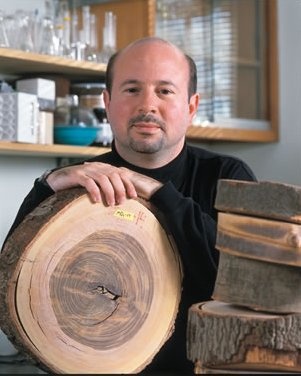Climate science denier group must pay damages for frivolous lawsuit against UVA, scientist

Virginia's highest court has ruled that the American Tradition Institute (ATI), a free-market think tank that promotes climate science denial, must pay damages to the University of Virginia and former professor Michael Mann for filing a frivolous lawsuit against them. The decision comes in a case that has sparked controversy about the abuse of public records laws to harass climate scientists.
Mann, who now directs Penn State's Earth Systems Science Center, has been a target of climate science deniers for his research showing that the recent spike in global temperatures -- the so-called "hockey stick" graph -- is linked to the burning of fossil fuels. A Facing South investigation found that ATI had connections to fossil-fuel interests. The group, which last year changed its name to the Energy & Environment Legal Institute (EELI), is a spin-off of the American Tradition Partnership, a dark-money group that has been embroiled in campaign finance controversies.
On July 8, the Supreme Court of Virginia affirmed the ruling by the Circuit Court of Prince William County on appeal, ordering ATI to pay $250 in damages. For a copy of the order, click here.
In a post to his Facebook page, Mann acknowledged that it was a small fine. "The important thing is that it is a slap in the face of ATI," he wrote.
The case can be traced back to 2010, when then-Virginia Attorney General Ken Cuccinelli (R) filed investigative demands ordering UVA to produce documents related to Mann as part of a widely criticized investigation into whether the scientist violated the state's Fraud Against Taxpayers Act by allegedly falsifying data -- a charge that has been discredited by several investigations by Penn State and other institutions. UVA initially said it intended to cooperate with the investigation but decided to fight after objections from its own faculty and many scientific organizations. That August, a Virginia judge dismissed Cuccinelli's case, at which point he issued a new demand for the materials. In March 2012, the Virginia Supreme Court ruled in the school's favor.
Meanwhile, in January 2011, ATI submitted a Freedom of Information request to UVA for emails sent by Mann during his tenure at the Charlottesville school. The university and Mann fought the release of the documents on the grounds that they were proprietary materials generated as part of his research, sparking ATI's lawsuit. In September 2012, the Virginia circuit court ruled against ATI. The group appealed to the state Supreme Court, which in April of this year unanimously upheld the lower court's ruling.
After taking aim at Mann, ATI also sought records from climate scientists at Texas A&M and Texas Tech, focusing on their communications with journalists. The group was also involved in lawsuits over state renewable energy standards. A ruling in a case ATI/EELI brought against Colorado's renewable energy standard led to what one wind power industry group called "the most comprehensive affirmation of a [renewable energy standard] from a federal court to date."
Mann has not only been a defendant in lawsuits related to climate science, however: He has also turned to the courts to fight defamatory statements made about him in the conservative press. In 2012, he sued National Review and its reporter Mark Steyn and the Competitive Enterprise Institute and its analyst Rand Simberg for "maliciously" attacking his personal reputation. The lawsuit was a response to their statements accusing him of academic fraud and comparing him to a convicted child molester. That case is still making its way through the D.C. courts.
"There is a larger context for this latest development," Mann wrote on his Facebook page at the time he filed the defamation suit, "namely the onslaught of dishonest and libelous attacks that climate scientists have endured for years by dishonest front groups seeking to discredit the case for concern over climate change."
Tags
Sue Sturgis
Sue is the former editorial director of Facing South and the Institute for Southern Studies.
